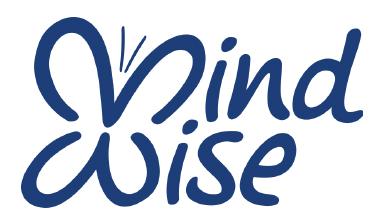Personality Disorders
Everyone has different ways of thinking, feeling, and behaving. It is these thoughts, feelings, and behaviours that make up our ‘personality’. These are often called our traits. They shape the way we view the world and the way we relate to others. By the time we are adults these will make us part of who we are.
You can think of your traits as sitting along a scale. For example, everyone may feel emotional, get jealous, or want to be liked at times. But it is when these traits start to cause problems that you may be diagnosed as having a personality disorder.
A personality disorder can affect how you cope with life, manage relationships, and feel emotionally. You may find that your beliefs and ways of dealing with day-to-day life are different from others and that you find it difficult to change them. You may find your emotions confusing, tiring, and hard to control. This can be distressing for you and others. Because it is distressing, you may find that you develop other mental health problems like depression or anxiety. You may also do other things such as drink heavily, use drugs, or self-harm to cope.
Research shows that personality disorders are fairly common. Around one in 20 people live with some form of personality disorder.
Types & SymptomsWhat are the different types of personality disorders?
Doctors use guidelines for diagnosing mental health problems. The main guidelines used are the:
- International Classification of Diseases (ICD-10) produced by the World Health Organisation (WHO), and
- Diagnostic and Statistical Manual (DSM-5) produced by the American Psychiatric Association.
The guidelines say which symptoms you may have and for how long you should have them to get a particular diagnosis. A doctor (such as a psychiatrist) will ask you questions about your life and what sort of feelings, emotions, and behaviours you have. This is called an ‘assessment’.
You should not feel as though it is your fault, or that you are to blame if you have been diagnosed with a personality disorder. Problems with diagnosis are explored in more detail in, “What risks and complications can personality disorders cause?”
Personality disorders diagnoses are grouped into three ‘clusters’, A, B, and C.
Cluster A personality disordersPeople with cluster A personality disorders can find it hard to relate to other people. Their behaviour might seem odd or eccentric to other people.
Paranoid personality disorder
You may feel very suspicious of others but without a reason if you have been diagnosed with paranoid personality disorder. This can make you feel other people are lying to you or using you. This can make it difficult to trust others, even friends. You may find it difficult to forgive insults and will bear grudges.
Your doctor should rule out schizophrenia, psychosis, and mood disorders if you have been diagnosed with paranoid personality disorder.
Schizoid personality disorderWith schizoid personality disorder, you may have few social relationships and will prefer to be alone. You might actually be very shy, but other people may think you are quite cold and distant.
Schizotypal personality disorderSchizotypal personality disorder is where you have problems relationships with other people. You may have strange thoughts, feel paranoid and see or hear things that aren’t there. You may also lack emotion or be described as being ‘eccentric’.
Cluster B personality disordersPeople with cluster B personality disorders can find it hard to control their emotions. Other people might see them as unpredictable.
Antisocial personality disorder (ASPD)Being diagnosed with antisocial personality disorder (ASPD) may mean you are impulsive, reckless and do not think about how your actions affect other people. You may get easily frustrated, aggressive and be prone to violence. You may do things to get what you want. Others may see this as acting selfishly and without guilt.
Borderline personality disorder (BPD)You may have strong emotions, mood swings, and feelings you can’t cope with if you have borderline personality disorder (BPD). You may feel anxious and distressed a lot of the time. You may have problems with how you see yourself and your identity. You may self-harm or use drugs and alcohol to cope with these feelings. This can affect the relationships you have with other people.
BPD is also known as ‘emotionally unstable personality disorder’.
You can find more detail about Borderline Personality Disorder on the NHS website.
Histrionic personality disorderIf you are diagnosed with histrionic personality disorder, you may like being the centre of attention. You may feel anxious about being ignored. This can cause you to be lively and over-dramatic. You may become bored with normal routines, worry a lot about your appearance and want to be noticed.
Narcissistic personality disorderNarcissistic personality disorder can mean you have a high sense of self-importance. You may fantasise about unlimited success and want attention and admiration. You may feel you are more entitled to things than other people are. You might act selfishly to gain success. You may do this because inside, you don’t feel significant or important.
Cluster C personality disordersPeople with cluster C personality disorders have strong feelings of fear or anxiety. They might appear withdrawn to other people.
Dependent personality disorder
If you have dependent personality disorder, you may allow other people to take responsibility for parts of your life. You may not have much self-confidence or be unable to do things alone. You may find that you put your own needs after the needs of others. You may feel hopeless or fear being alone.
Avoidant personality disorder
If you have avoidant personality disorder, you may have a fear of being judged negatively. This can cause you to feel uncomfortable in social situations. You might not like criticism, worry a lot and have low self-esteem. You may want affection but worry that you will be rejected.
Obsessive-compulsive personality disorder
If you have this condition, you may feel anxious about things that seem unorganised or ‘messy’. Everything you do must be just right, and nothing can be left to chance. You may be very cautious about things and think a lot about small details. Others may see you as being controlling.
Obsessive-compulsive personality disorder is different to obsessive-compulsive disorder (OCD). If you have obsessive-compulsive personality disorder, you may believe your actions are justified. People with OCD tend to realise that their behaviour is not rational.
To read more about Personality Disorders - Click Here





































































































































